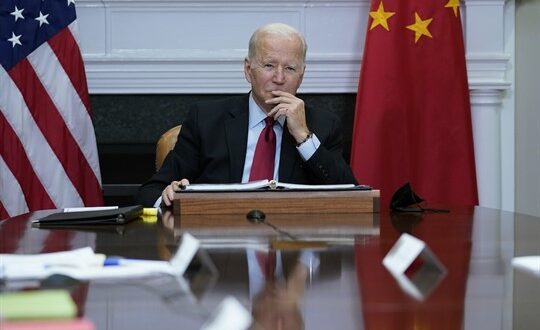As the Biden administration prepares to release its National Security Strategy and National Defense Strategy, observers are searching for clues on how those reviews will grapple with the framework of “great-power competition” that anchored the previous administration’s high-level policy documents.
That framework has achieved substantial bipartisan traction in the intervening four years among government officials, lawmakers and scholars, in part because it is rooted in three judgments with which most analysts would agree, even if they disagree about how those core premises should guide U.S. foreign policy. First, interstate competition, which has been a core aspect of world affairs since the Treaty of Westphalia enshrined the nation-state as the building block of geopolitics, is resurgent after a period in which multilateral cooperation seemed like it could become a durable pillar of relations between major powers. Second, while the United States remains the world’s only superpower, its relative influence is declining. Third, China and Russia are increasingly challenging U.S. national interests, individually and in partnership.
 Eurasia Press & News
Eurasia Press & News




